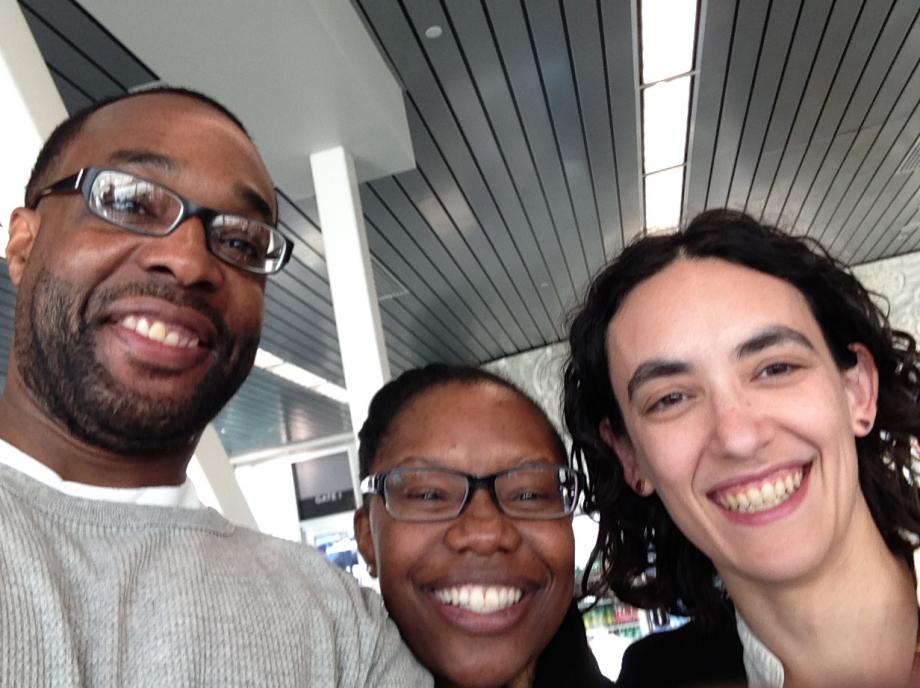Fighting Mandatory Minimums

Eugene Haywood—a client of the Law School’s Federal Criminal Justice Clinic (FCJC)—had served nearly fifteen years of his mandatory life sentence for a nonviolent drug crime when President Barack Obama commuted his sentence. With thousands of clemency petitions pending and thousands more already disqualified, obtaining one of the 187 commutations that Obama granted in the past seven years was more than a longshot. But the significance of the FCJC winning this case goes far beyond beating the odds—by proving that Haywood didn’t deserve life in prison, the clinic also underscored the need for sentencing reform.
The FCJC is one of about 30 law school clinics participating in Clemency Project 2014—a project formed to assign pro bono attorneys to the tens of thousands of federal inmates seeking clemency under the White House’s new clemency initiative. Lawyers and law students involved in the project have been working within this new legal framework to try to amend overly harsh, outdated sentences for an unprecedented number of inmates.
“Eugene Haywood deserved clemency. He was rehabilitated, and he proved through his own actions in prison that if the President released him, he would be a contributing member of society,” said Assistant Clinical Professor Judith Miller, who works in the FCJC and represented Haywood.
In taking on Haywood’s case, Miller hoped to use the clinic’s expertise on federal sentencing to help one indigent client obtain clemency. The case would also serve the FCJC’s broader mission of promoting fairness in the criminal system.
“Eugene is one of many people sentenced to far-too-lengthy prison terms—people who have done wrong but who were also victims of an unjust system.” Because Haywood had been convicted of drug crimes twice in the past, federal law allowed the prosecutor to force the judge to impose a sentence of life imprisonment. Putting that authority solely in the hands of prosecutors, without any opportunity for further review, has contributed to unwarranted racial sentencing disparities and mass incarceration, Miller said.
Although Obama fixed the unfair sentences of the 187 commutees, the broader problem cannot be corrected through clemency alone, Miller added.
“The pardon power is an important constitutional power, but we shouldn’t have to depend on individual acts of mercy to solve what is really a systemic problem.” A first step to solving the problem systemically, she said, would be passing one of the sentencing reform bills currently pending in Congress.
Since fall of 2014, five students in the FCJC have worked on Haywood’s case. Students in this clinic represent indigent clients charged with federal crimes, so they have the opportunity to write motions and briefs, examine witnesses, negotiate with prosecutors, and argue before federal judges. Last November, the FCJC hosted a meeting of legal clinics and practitioners from around the country that are working on federal clemency. The meeting gave students a chance to brainstorm with experts in clemency and learn more about the process for petitions like Haywood’s.
“Students were integral at every moment during this case,” Miller said. “Eugene completely turned his life around, but helping him show that to the pardon attorneys required an enormous amount of dedication and insight from the students.”
Grace Goodblatt, ’16, joined the FCJC in 2015 and worked on the case that previous students had begun a year earlier. Preparing the petition, Goodblatt said, required countless interviews with Haywood and those who knew him, allowing them to tell the story of a man who didn’t deserve to be in prison for life.
“We were a team—it was a lot of work and there were a lot of hands on deck, so it felt very much like we were all in the trenches together. It was a really rewarding experience that I feel lucky to have been a part of,” Goodblatt said.
Students’ involvement in the clinic, Miller said, shows them that practicing law is not only research, writing, and appearing in court. “It is taking responsibility for your client, and feeling the weight of that when you go to sleep at night and when you wake up in the morning. We want our students to learn how to take this seriously without having it be overwhelming.”
The magnitude of this victory and its impact on Haywood is something Miller hopes students will take with them after law school. “This case ended with our client being freed from prison—it’s a once in a lifetime experience.”